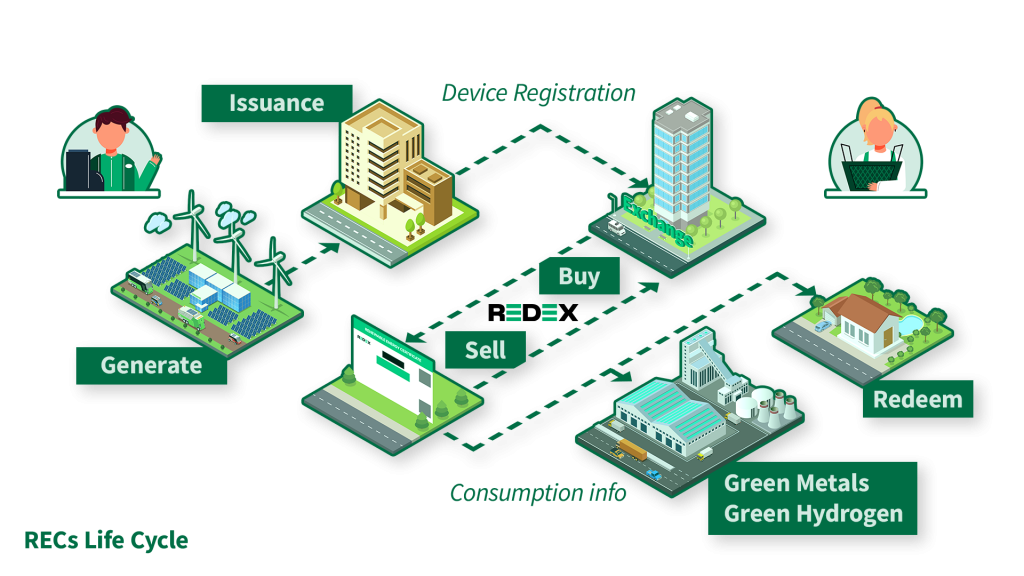REAPI by REDEX:
Automate Renewable Energy Certificate Management
Overview

Seamless Integration Process

Versatile, Reliable and Comprehensive

Lower Access Costs
Resources
Get Started
Get Started With Us
Get in touch with us to learn more.
Partners and Clients



FAQ
REAPI stands for Renewable Energy Application Programming Interface. It’s a suite of APIs developed by REDEX to streamline data integration with our core renewable energy products: REHash, REConnect, and RESuite.
- Renewable Energy Generators: Easily generate and trade Renewable Energy Certificates (RECs) through deeper data integration. We simplify solar rooftop device registration with fewer documents and faster approvals.
- Technology Solution Providers: Sustainability platform providers offering carbon accounting can integrate REC supply onto their platform. This allows your clients to redeem RECs and support their Scope 2 decarbonization goals.
- Green Products Manufacturers: Showcase your commitment to renewable energy by using RECs to demonstrate that clean energy sources power your manufacturing process. This can be valuable for Green Hydrogen producers, Aluminium and Steel producers exporting to the EU, EV Charging Operators, and Battery Manufacturers.
To get started, email platform@redex.eco to schedule an online meeting.
REAPI is a lightweight, web-based REST (Representational State Transfer) API, compatible with most programming languages.
REAPI is a web-based Representational State Transfer (REST) architectural style API. It is lightweight and can be integrated with most programming languages.
Yes, we provide a shared sandbox environment for all our partners. Dedicated sandbox environments can be considered if the volume and nature of the integration require such support.
Please refer to our detailed public API documentation.
Depending on the functionality involved, the API cost will be discussed as part of the engagement process.
- All calls to our API are protected by OAuth2 tokens and encrypted via HTTPS traffic.
- All our APIs are configured with rate limiting to control the number of requests, helping to protect against abuse and denial-of-service attacks.



